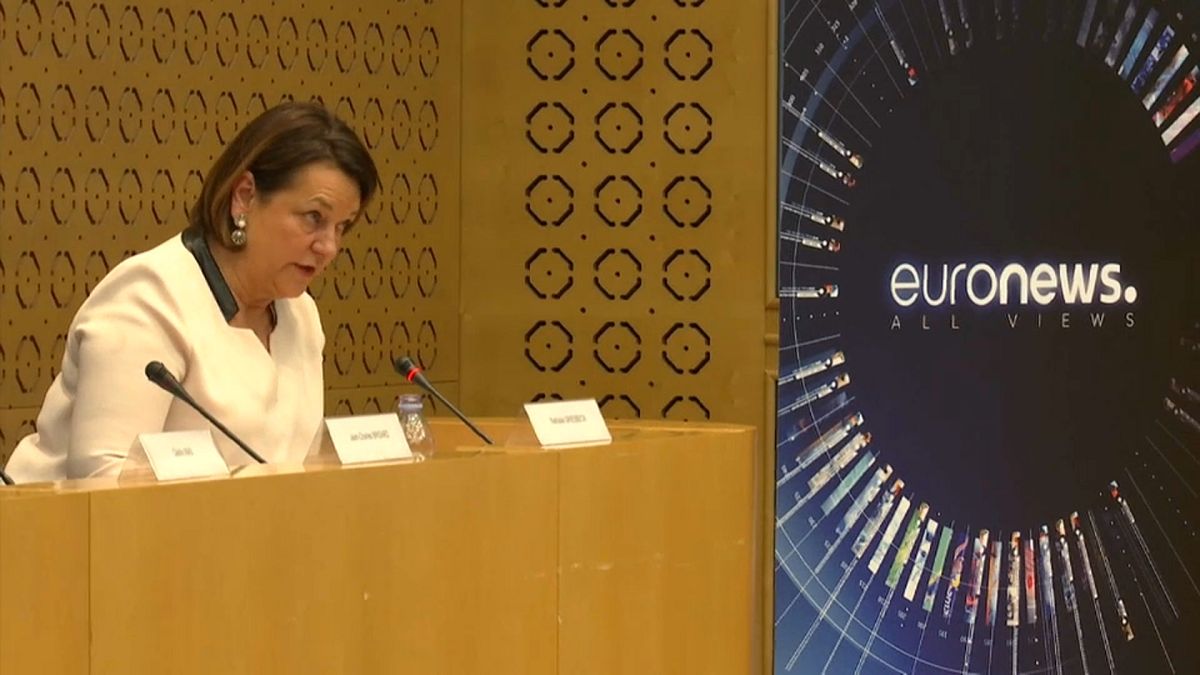Delegates faced with grim picture of disfunctionment, lack of communication, and failure to follow up on cases that puts Europe's citizens in peril.
Euronews has just been involved with a conference on terrorism, so it seemed like a natural place to ask the question "Is anywhere safe?" after the small French town of Trebes was subject to a terror attack.
One member of the European parliament sees failures in police monitoring.
"This man was put on a special register, and in 2010 he was sentenced for acts of violence, two years later for drug trafficking, then three years later for carrying a forbidden weapon. I think that we have to rethink the principle of this register, fine-tune it and make a distinction according to the level of dangerousness of these people," said the ALDE President of the Special Commission on Terror Nathalie Griesbeck.
Others say no amount of past crimes can accurately indicate when a terrorist will strike.
"There were probably more dangerous individuals than him on the list that attracted attention of police and gerndarmerie - so he 'passed into the background', so to speak - but mind you, our services have already prevented a number of attacks, so I wouldn't call it oversight," said UDI Senator and roundtable organiser Nathalie Goulet.
Is nowhere safe?
Others express doubts perfect safety can ever be guaranteed.
"This man's danger factor was evaluated, and the conclusion was he did not present any indication he intended to act, to commit an act of terror. But this sort of control, an evaluation, is not permanent, not everyday - there are too many people to track, the radicalisation prevention file contains 20,000 names, you cannot honestly even try to track 20,000 names, it's impossible in any democracy in the world.
But what happened after those checks and when were they done? Why was his file not "active" for the special services, namely the General Directorate for Internal Security that was tracking him? Those are the questions that have to be answered now, by the Interior Minister and its services," said the President of the Centre for Analysis on Terror, Jean-Charles Brisard.
The French Senate roundtable asked, with the fall of the so-called Islamic State in Iraq, where is the fight against terrorism headed? Participants came from Saudi Arabia, Lebanon and Yemen to discuss the situations their countries are facing.
Ahmad Asiri, an adviser to Saudi Arabia's defence minister, defended his country’s decision to lead an international coalition in the war against Yemen's Houthi rebels. As a bordering country, he said that Yemen was of “extreme interest” to Saudi Arabia.
Without intervention, he claimed there was a risk that Yemen would turn into the Libyan model “where there aren’t national institutions anymore.”
"Terrorism doesn't have a religion"
The former director of the Lebanese Internal Security Forces Ashrad Rifi warned that “sticking a terrorist connotation to a religion exacerbates the problem and allows terrorists to develop their networks unnoticed.” He added, “Terrorism doesn’t have a religion.”
Rifi said the Palestinian conflict was the main reason for violence in the region. “Totalitarian regimes woke up nationalist sentiments that had lied dormant for centuries, they promote terrorism,” he said, calling on western countries to join forces in the fight against terrorism in the region.
Hezbollah 'normalises' jihad
Expert on terrorist movements Romain Caillet said that Lebanese militant group Hezbollah uses the concept of “resistance” as a means to normalise Shiite jihad in Lebanese society
Shiite jihad is more of a regional jihad rather than a global jihad. Caillet pointed to the ties between regional groups like the Iraqi Shiite militants and Hezbollah.
The roundtable was also joined by Yemen's ambassador to France Yassin Abdullah and journalist Wassim Nasr. It was moderated by Nathalie Goulet, a member of the French Senate.
